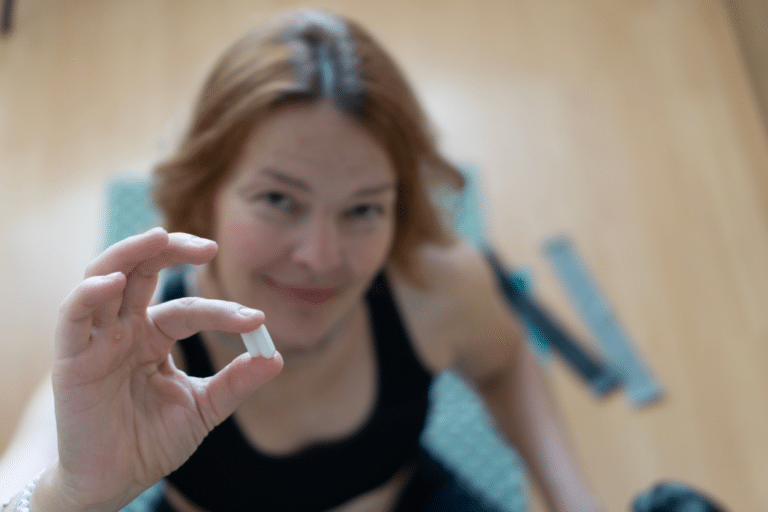The Link Between Insulin Resistance and PCOS
Insulin resistance is a key factor in the development of Polycystic Ovary Syndrome (PCOS), a common endocrine disorder in women. While the exact cause of PCOS is not fully understood, insulin resistance is believed to play a significant role.
Here’s How Insulin Resistance is Interconnected With PCOS:
Hyperinsulinemia
In insulin resistance, the body’s cells do not respond efficiently to insulin, a hormone produced by the pancreas. As a result, the pancreas produces more insulin to compensate for the decreased sensitivity of cells to its effects. This leads to higher levels of insulin in the bloodstream, a condition known as hyperinsulinemia. High insulin levels can appear long before high blood sugar levels, so this is a blood test I request for clients if there is any suspicion of blood sugar management problems (including hypoglycemia).Increased Androgen Production
Elevated insulin levels then stimulate the ovaries to produce increased amounts of androgens, which are male hormones. Androgens include testosterone and DHEA, and in individuals with PCOS, the ovaries may overproduce these hormones. This excess androgen production is one of the hallmarks of PCOS and can lead to symptoms such as acne, hirsutism (excessive hair growth), and irregular menstrual cycles.Ovulatory Dysfunction
The excess androgens and insulin resistance can disrupt the normal ovarian function and result in ovulatory dysfunction. In PCOS, some follicles in the ovaries may start to develop but do not mature or ovulate properly. This can lead to the formation of small, fluid-filled sacs or cysts on the ovaries, which are characteristic of PCOS. This can also result in low levels of progesterone.Irregular Menstrual Cycles
Ovulatory dysfunction can lead to irregular or infrequent menstrual cycles in individuals with PCOS. Some people with PCOS may experience very long cycles or even miss periods altogether.Infertility
The combination of insulin resistance, elevated androgens, and ovulatory dysfunction can make it difficult for individuals with PCOS to conceive. PCOS is one of the leading causes of female infertility.Metabolic Implications
Insulin resistance is associated with metabolic disturbances, including obesity and an increased risk of type 2 diabetes. Many women with PCOS also have these metabolic issues, further complicating their health.Chronic Inflammation
And finally, insulin resistance can promote chronic inflammation in the body, which is believed to contribute to some of the long-term health complications associated with PCOS, like an increased risk of heart disease.
PCOS is complex and not all individuals with the condition will have the same symptoms or experience the same degree of insulin resistance. Additionally, while insulin resistance is a common feature of PCOS, it is not the sole factor contributing to the condition. Genetic, hormonal, and environmental factors also play a role.
The Facts
Management of PCOS often involves addressing insulin resistance through lifestyle modifications such as a healthy diet, regular exercise, and, in some cases, medication to improve insulin sensitivity. Controlling insulin resistance can help alleviate some of the symptoms of PCOS and reduce the risk of long-term health complications. If you suspect you have PCOS or are experiencing symptoms, let’s talk. My team can tailor a plan based on lifestyle changes and supplements to help you manage the contributors to insulin resistance and restore a more normalized menstrual cycle.
Dr. Anna Garrett is a menopause expert and Doctor of Pharmacy. She helps women who are struggling with symptoms of perimenopause and menopause find natural hormone-balancing solutions so they can rock their mojo through midlife and beyond. Dr. Anna is the author of Perimenopause: The Savvy Sister’s Guide to Hormone Harmony. Order your copy at www.perimenopausebook.com.
Dr. Anna is available for 1-1 consultation. Find out more at www.drannagarrett.com/lets-talk.




